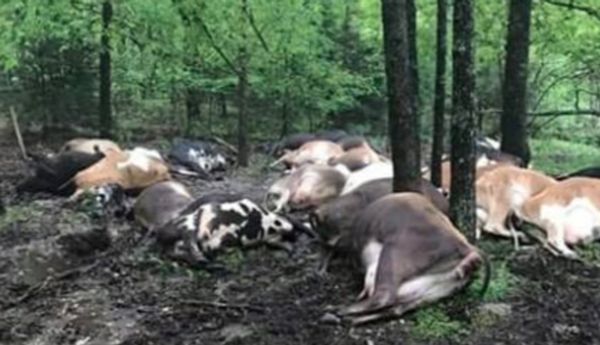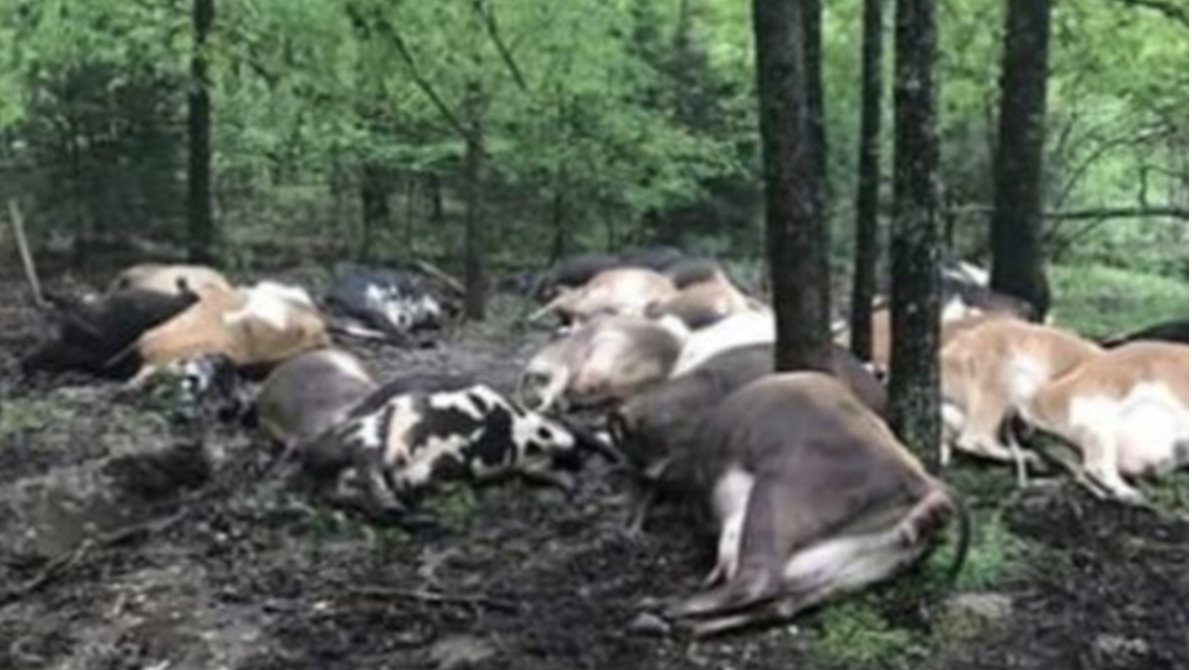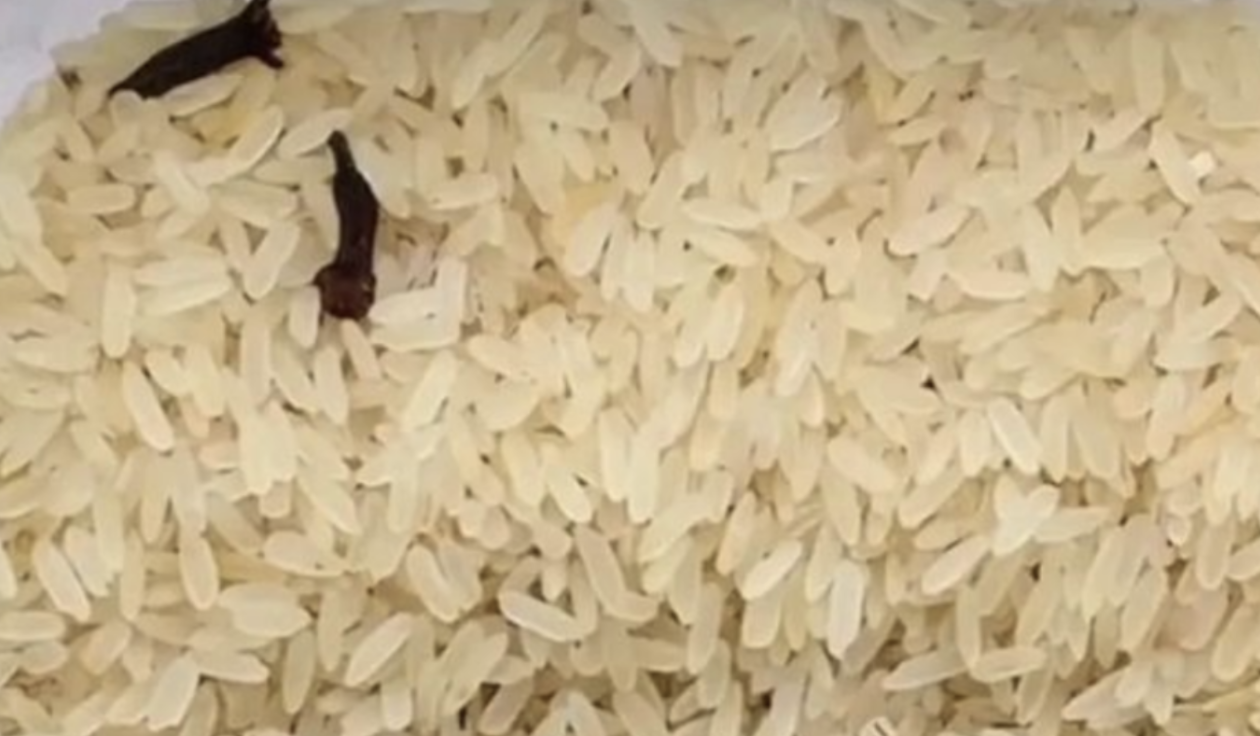On a fateful Saturday morning, Jared Blackwelder, a hardworking farmer from Springfield, Missouri, faced an unexpected and devastating blow. Severe weather swept through the region, leaving him shattered and heartbroken.

In the midst of their daily routine, Jared and his wife Misty were busy tending to their beloved dairy cows. Little did they know, a storm was brewing in the distance. The sound of thunder and flashes of lightning loomed, but they pressed on with their chores, unaware of the impending disaster.
Later that day, as Jared made his way back to the pasture to gather the cows for their evening milking, he was confronted by a harrowing sight. Thirty-two lifeless bodies of his cows were piled on top of each other – victims of a devastating lightning strike.
Stan Coday, president of the Wright County Missouri Farm Bureau, described the event as truly tragic. While unfortunate incidents like this can occur, the sheer number of cows affected in this case made it even more heart-wrenching.
A local veterinarian confirmed that lightning was the cause of death. It is believed that the cows sought shelter behind a group of trees, unaware of the imminent danger that awaited them.
Jared’s grief was shared by others, including Coday, who had also lost a cow to lightning in the past. He understood the profound impact such a loss has on a farmer. The tragedy was a cruel hand dealt by Mother Nature, beyond Jared’s control.
Aside from the emotional toll, the financial blow was significant. Each of Jared’s certified organic cows had an estimated value of $2,000 to $2,500. With the loss of 32 precious cows, the financial setback amounted to nearly $60,000. While insurance may offer some relief, the uncertainty surrounding coverage further compounded the distress.
“Farming carries risks, and most farmers don’t carry insurance. When you lose a cow, it feels like losing everything,” explained Coday, shedding light on the precarious nature of the industry.
To make matters worse, the meat from the deceased cows was deemed unfit for human consumption. The prolonged exposure to the elements rendered the animals unsuitable for processing, dashing neighbor’s hopes of purchasing the meat.
In the face of this devastating tragedy, it is crucial to acknowledge that this was an unforeseen natural event – something no farmer can control or prevent. The impact of such an incident goes beyond emotions, leaving a profound mark on the affected farm and its owners, both emotionally and financially.
Let us take a moment to cherish the animals under our care and acknowledge the immense dedication and hard work that goes into farming. While Mother Nature’s power is undeniable, the resilience and indomitable spirit of farmers like Jared Blackwelder will always endure, reminding us of the strength and perseverance within the agricultural community.





